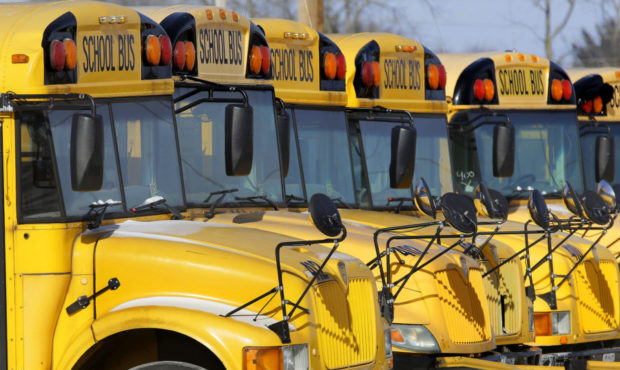State superintendent proposes capital gains tax to fund education
Oct 9, 2018, 1:55 PM | Updated: 2:30 pm

(AP file)
(AP file)
The State Schools Superintendent is proposing a capital gains tax to pay for education.
Chris Reykdal unveiled his budget for the next biennium and he’s calling for an eight percent long-term capital gains tax that would raise an estimated billion dollars each year.
Half of that money would replace property taxes to reduce the burden on homeowners. Reykdal explained that that way, districts can increase levies if needed.
“It’s not easy and we’re not done yet with the difficulty of the work,” Reykdal said. “Every 30-40 years, this state has faced litigation that’s caused it to rethink the way it funds schools. And every time, it’s taken a couple years to shake out.”
Reykdal says the other half of the capital gains tax would go toward K-12 priorities. His budget centers on six ideas:
- Inclusive and effective learning and teaching. $180 million would increase funding for students with disabilities and provide additional professional learning days for all school staff.
- Comprehensive supports. $60 million would provide more school nurses, middle school counselors, and family and community engagement coordinators.
- Multiple pathways to graduation. $65 million would expand dual credit and career and technical education (CTE) programs, including opportunities for students to receive required academic credits in CTE courses.
- Expanded learning opportunities. $10 million would fund a pilot program for school districts or tribal compact schools to extend or expand the school day or year, or switch to a year-round schedule.
- Safe and effective school facilities. $400 million would allow OSPI to create a new funding model for elementary schools, which will build capacity to meet the state’s K–3 class size ratios. The proposal would also create a new program to assist primarily rural schools in preserving and maintaining buildings.
- Dual language. $14 million would allow 12 additional school districts and tribal compact schools to receive competitive grant funding for dual language programs. Funding would also expand capacity to teach in these programs by providing stipends and bonuses to bilingual teachers and paraeducators.














